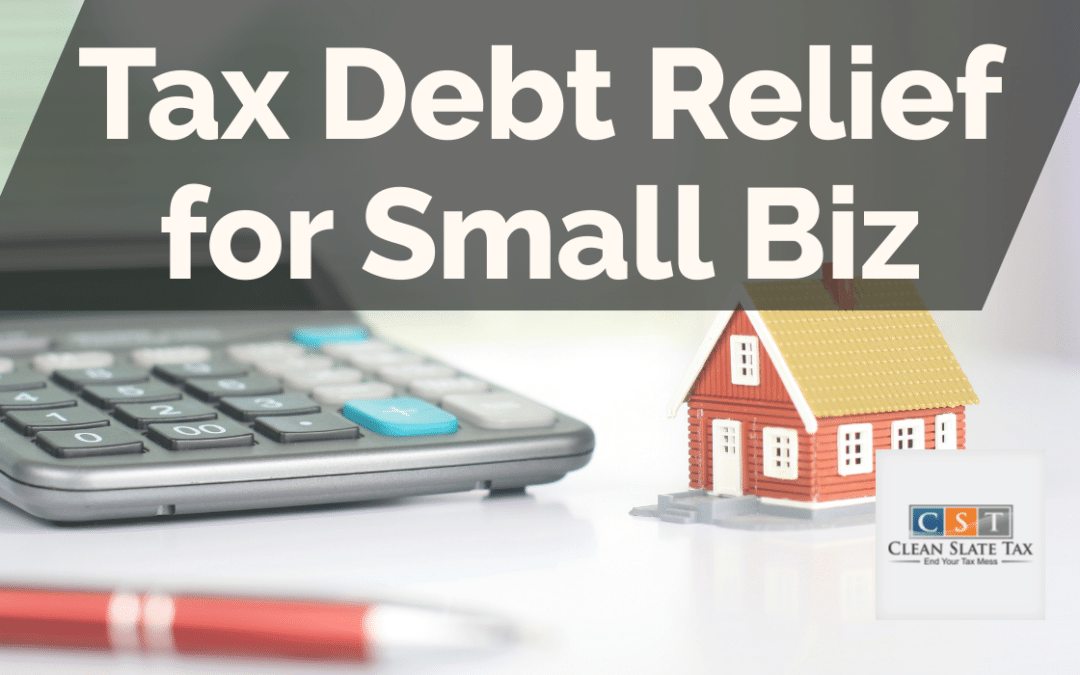As a small business owner, keeping up with taxes and managing finances can be difficult. It is not uncommon to fall behind on tax payments or even accumulate a tax debt. However, ignoring the problem and hoping it will go away only leads to more significant issues in the future. This is where tax debt relief for small businesses comes into play.
Tax debt relief refers to various programs and solutions designed to reduce or eliminate outstanding tax liabilities. These solutions are particularly helpful for small business owners who may not have the resources or expertise to navigate complex tax issues. The following are some of the tax debt relief options available for small businesses:
Offer in Compromise (OIC)
An offer in compromise is a program that allows taxpayers to settle their tax debt for less than what they owe. To qualify for OIC, small business owners must prove that they cannot pay their tax debt in full, even with an installment agreement. The IRS will consider a taxpayer’s assets, income, expenses, and future earning potential when evaluating an OIC application.
Installment Agreement (IA)
An installment agreement allows taxpayers to pay their tax debt over time in monthly installments. If a small business owner owes $50,000 or less in combined tax, penalties, and interest, they can apply for an IA online. If they owe more than $50,000, they must submit a financial statement to the IRS.
Currently Not Collectible (CNC)
If a small business owner cannot pay their tax debt and cannot afford a payment plan, the IRS may deem them currently not collectible. This means that the IRS will temporarily suspend collection activities, but it does not eliminate the tax debt. Small business owners who qualify for CNC status must prove that paying their tax debt would cause undue financial hardship.
Penalty Abatement
Penalty abatement is a program that allows taxpayers to reduce or eliminate penalties assessed for failing to file a tax return or failing to pay taxes on time. Small business owners must provide a valid reason as to why they were unable to file or pay their taxes on time, such as a natural disaster or a serious illness.
Frequently Asked Questions (FAQs)
Q: Can tax debt relief programs eliminate all tax debts?
A: No. Tax debt relief programs only apply to certain types of tax debts. For example, income taxes and employment taxes are eligible for relief, while taxes such as property taxes and sales taxes are not.
Q: Will tax debt relief programs affect my credit score?
A: Yes. Tax debt relief programs can negatively impact a small business owner’s credit score. However, it is better to address the tax debt issue than to have it go to collections and negatively impact credit even more.
Q: How long does it take to get approved for a tax debt relief program?
A: The length of time varies depending on the program and the complexity of the case. Some IRS programs, such as an installment agreement, can be approved within 30 days. Other programs, such as offer in compromise, can take several months to process.
Q: Can I negotiate with the IRS myself?
A: Yes, small business owners can negotiate with the IRS themselves. However, it is recommended that they seek the help of a tax professional to ensure the best possible outcome.
Conclusion
Tax debt relief programs provide small business owners with a lifeline when they fall behind on their tax payments. Whether it’s an offer in compromise, an installment agreement, or penalty abatement, these programs can help reduce or eliminate tax debts, allowing small business owners to get back on track. If you’re struggling with tax debt, it’s essential to explore your options and work with a tax professional to find a solution that works for you.





